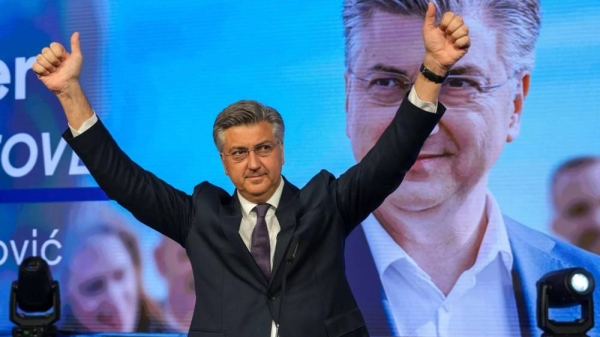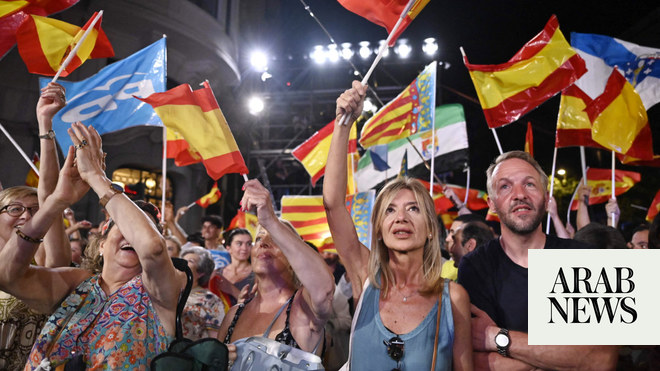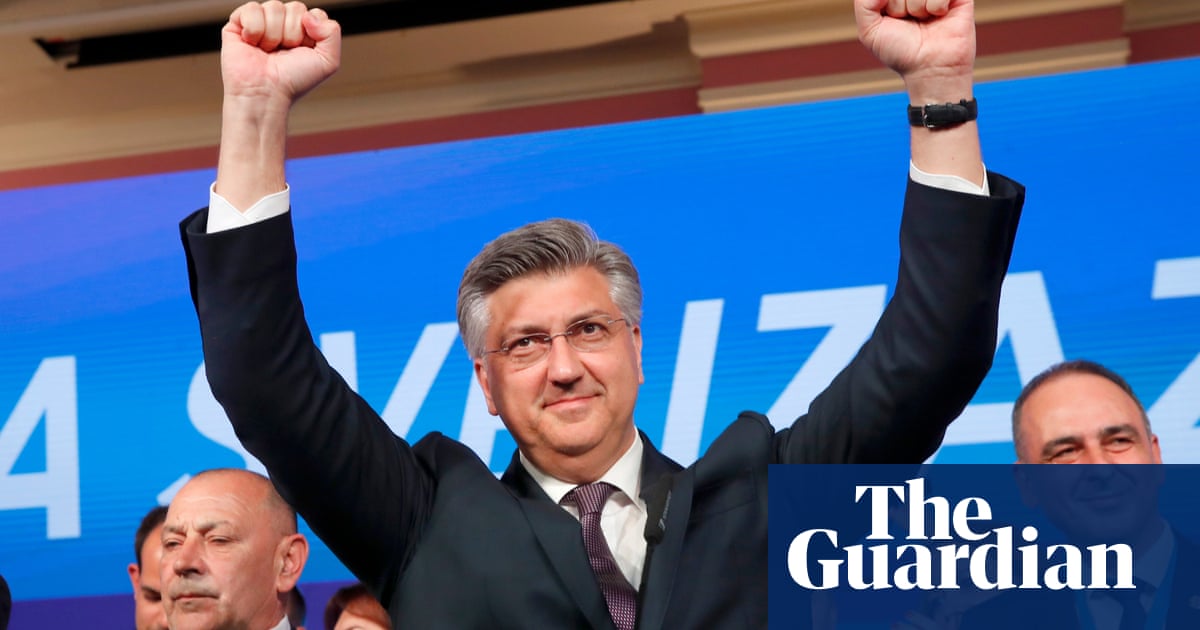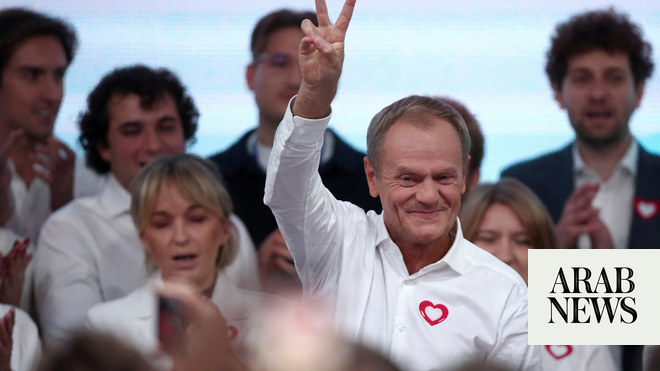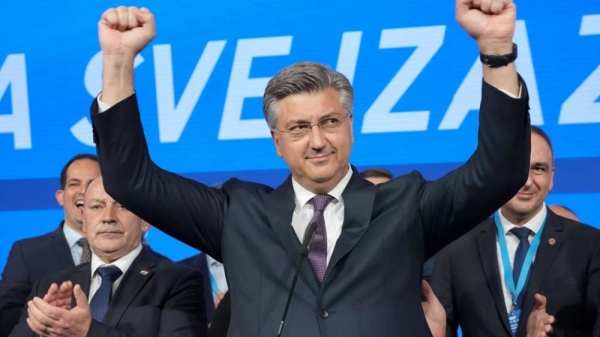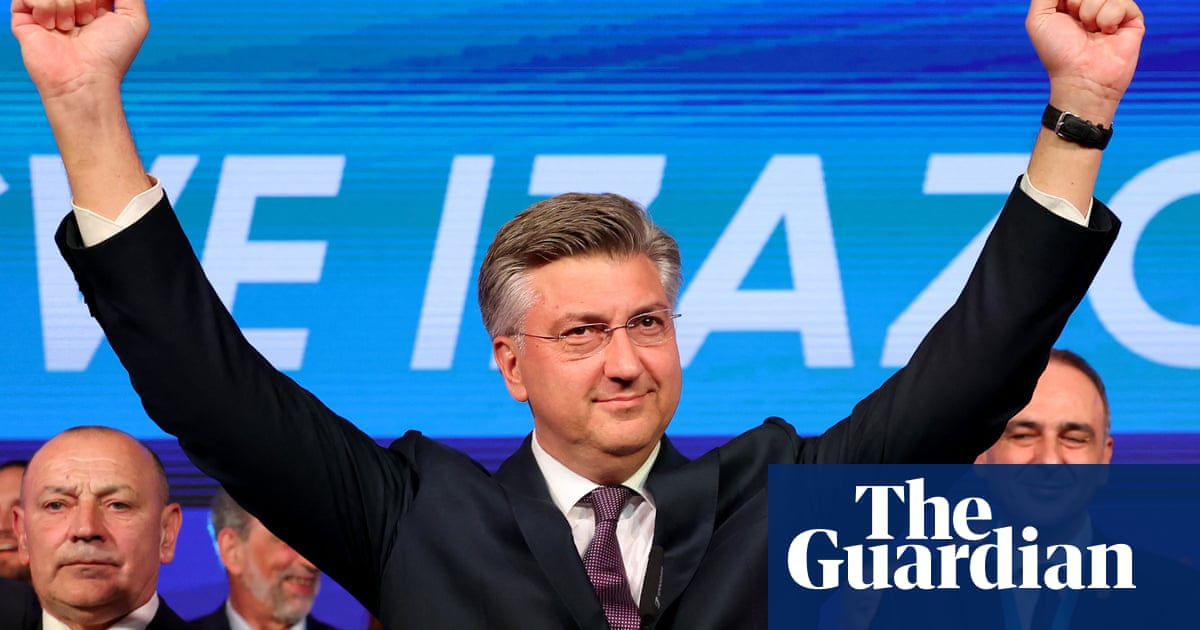
Croatia’s ruling conservative party won the most seats in parliamentary elections, but not enough to form a government, according to almost complete official results.
The prime minister, Andrej Plenković’s Croatian Democratic Union (HDZ) has won 60 seats in the 151-member assembly, results from more than 90% of the polling stations have showed. In the previous 2020 election, the party won 66 seats.
Tough talks are expected in the coming days to form a government.
“The HDZ has for the third consecutive time convincingly won a parliamentary election,” Plenković told his supporters in Zagreb early Thursday.
A centre-left coalition led by the Social Democrats (SDP) won 42 seats, and the nationalist rightwing Homeland Movement party came third, with 14 seats.
An ultra-conservative and a green-left party won 11 and 10 seats each.
The HDZ will start gathering a new parliamentary majority to form its government on Thursday morning, Plenković said.
SDP leader Peđa Grbin said that while the results were not what the party wished for, they “showed that … people want a change”.
“It’s not over,” he said at the party headquarters in Zagreb.
Analysts said that the Homeland Movement party has a big negotiating opportunity, which could make it a kingmaker in forming a new government, although political analyst Tihomir Cipek told Nova TV that there “will be a very difficult negotiating process”.
Turnout was 60%, compared with 47% during the 2020 vote and followed a bitter campaign between Plenković, and leftwing populist president Zoran Milanović, who campaigned despite a court warning.
For months, Plenković and his HDZ seemed poised for an easy victory that would secure his third term as premier.
But in mid-March, Milanović – who tops political popularity surveys – made the shock announcement that he would challenge Plenković and become candidate for the Social Democrats.
Milanović canvassed across Croatia despite the country’s top court ruling that he could only stand in the election if he stepped down as president first. The Croatian presidency is a largely ceremonial office for a person without a political affiliation.
Plenković – who has served as premier since 2016 – accused his rival of violating the constitution, engaging in hate speech and called him a “coward” for not resigning.
The prime minister stressed his role in guiding the country of 3.8 million people into the eurozone and Europe’s passport-free Schengen area last year.
But with an average monthly wage of 1,240 euros ($1,345), the country remains one of the EU’s poorest.
Plenković has repeatedly accused Milanović of being “pro-Russian” due to his criticism of EU backing for Ukraine against Moscow’s invasion and the president’s opposition to training Ukrainian soldiers in Croatia, which is a Nato member.
Milanović, who has condemned Russia’s campaign in Ukraine, has argued that he was protecting Croatian interests by preventing the country from being “dragged into war”.
The HDZ has ruled Croatia for most of the period since its independence from Yugoslavia in 1991, while the SDP has been the opposition mainstay.
Milanović, who served as prime minister from 2011 to 2016, is known for his fiery rhetoric and profanity in tirades against HDZ opponents, EU officials and his critics.
His mandate expires in January but he said he would step down if the SDP and its allies secure a majority to form a new government.





